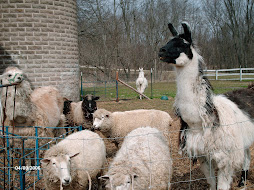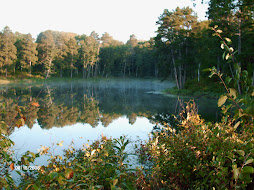Lynn Hodnett
Ms. Peifer
10IB Hr. 5
December 4, 2008
One of the values featured in Beowulf is pride in ones' own achievments, as shown in this quote: "the hero displayed/ high up near the roof: the whole of Grendel's/ shoulder and arm" (Heaney 833). It's a sick kind of trophy that shows off how much stronger and more powerful Beowulf is compared to Grendel. The Danes obviously impressed the characteristic of strength in their men: "Endure your troubles to-day. Bear up/ and be the man I expect you to be." (1395). Beowulf's very existence exaggerates this quality. However, strength isn't really encouraged in women because of Grendel's mother: "But now his mother/ had sallied forth on a savage journey,/ grief-racked and ravenous, desperate for revenge." (1276). This part of the story also casts revenge in a bad light, implying that if one goes out to seek revenge, the plan will backfire. Since Beowulf is a hero and has quite a few super-human qualities, there is bound to be at least a couple unrealistic actions taking place. One of these actions is when Beowulf rips off Grendel's arm: "Clear proof of this/ could be seen in the hand the hero displayed/ high up near the roof: the whole of Grendel's/ shoulder and arm, his awesome grasp." (832) Nobody is ever going to rip someone else's arm and shoulder off with thier bare hands. Even if they did, they would most likely be sent to jail and instantly put into therapy for anger management problems. Another extodinary task Beowulf performed was when he went down to Grendel's lair: "he dived into the heaving/ depths of the lake. It was the best part of a day/ before he could see the solid bottom." (1494). It is generally known that humans cannot breathe underwater without help from diving equipment and so can't be underwater for 'the best part of a day' without drowning. Beowulf contains several wonderfully decriptive lines. However, most of them refer to battle, fighting or some kind of weapon. One of the best ones is this: "But he soon found/ his battle-torch extinguished: the shining blade/ refused to bite." (1522). Not entirely sure what a battle-torch is, but the personification of Beowulf's sword really gives a good image of how the weapon was useless against Grendel's mother. Another quote that was chosen as a favorite also describes a sword: "sharp-honed, wave-sheened wonder blade" (1490). These descriptive words just make the sword almost as magical and super as Beowulf himself. "Meanwhile; the sword/ began to wilt into glory icicles/ to slather and thaw." (1605). This last line has terrific diction because it uses 'slather'. That word just makes one hear the blood seeping down the steel blade of the sword and see it stained deep red with Grendel's mothers' blood. It's sickening, but great imagery.
Subscribe to:
Post Comments (Atom)



No comments:
Post a Comment